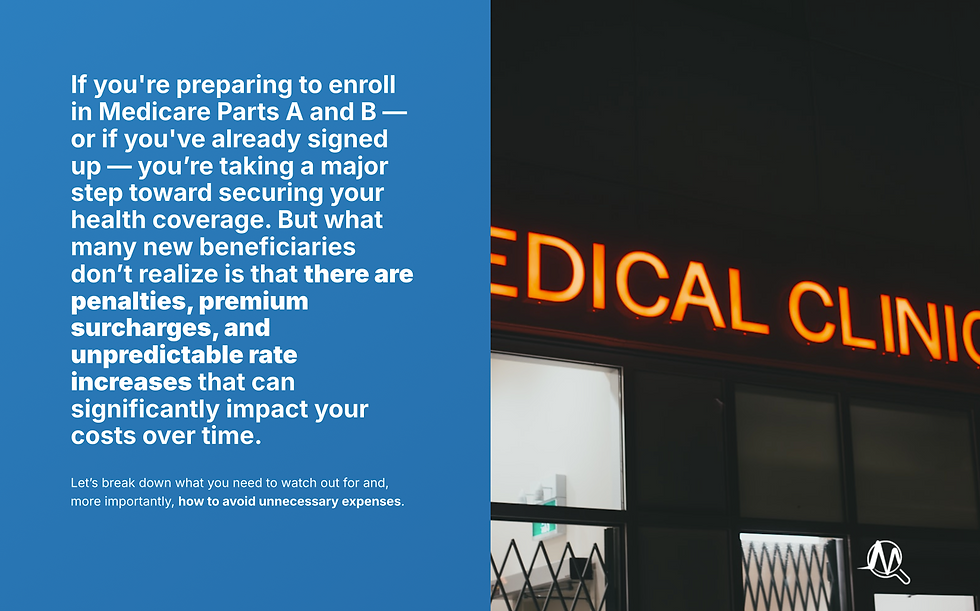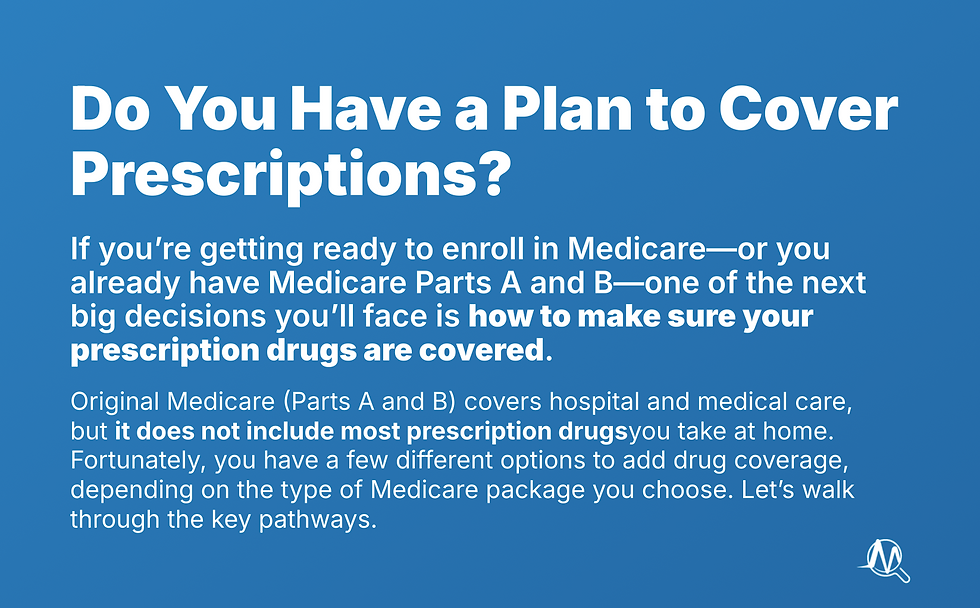Will Your Doctors Take Your Medicare Plan?
- Brice

- Jul 28, 2025
- 3 min read
Making Sure Your Doctors Accept Your Medicare Plan: A Guide for New Enrollees
If you're preparing to enroll in Medicare Parts A and B—or you've already enrolled—it's time to think about what comes next. One of the most important steps is choosing the right additional coverage: a Medigap plan or a Medicare Advantage plan. But equally important is making sure that your preferred doctors and providers will accept your chosen plan. Let's break down how to ensure you're covered and confident when you walk into your doctor’s office.
Medigap: Simple Rules for Provider Access
If you're planning to supplement your Medicare Parts A and B with a Medigap (Medicare Supplement) plan, provider access is relatively simple and flexible.
Here’s why: Medigap plans work alongside Original Medicare. That means as long as a provider accepts Medicare, they will also accept your Medigap plan. You do not need to worry about networks, referrals, or whether your doctor is in your supplement plan’s directory.
This can be a huge relief if you:
See multiple specialists
Travel frequently within the U.S.
Want peace of mind knowing you can access any doctor that takes Medicare
So, if you’re going with Medigap, the only question to ask your doctor is: "Do you accept Medicare?" If the answer is yes, you’re good to go.
Medicare Advantage (Part C): Know Before You Go
If you're choosing a Medicare Advantage plan (also called Part C), the situation is more complex. Medicare Advantage plans are run by private insurance companies and typically have networks of doctors, hospitals, and other providers. These networks vary by plan and location.
To make sure your doctor accepts your Medicare Advantage plan:
Check the plan's Provider Directory: This is a list of in-network doctors and facilities. These directories are often available online.
Call the provider directly: Always confirm that they still accept the plan, since networks can change.
Work with a licensed agent: An agent can do the research for you and confirm whether your preferred doctors are in-network during a consultation.
Failing to check network status can be costly. Here’s why:
In HMO Advantage plans, out-of-network care (unless it's an emergency) is generally not covered at all.
In PPO Advantage plans, you can go out of network, but you may pay significantly more—and some providers may not accept the plan at all.
If a provider is out-of-network and won’t bill the Advantage plan, you could be responsible for 100% of the cost.
So be proactive: verify your providers before you enroll. It’s a small step that can save you from unexpected bills.
What About Emergencies?
One of the most common questions about Medicare Advantage is, “Am I covered in an emergency?”
The answer is yes. All Medicare Advantage plans are required to cover emergency and urgent care anywhere in the United States, regardless of whether the provider is in the plan’s network.
That means if you have a medical emergency while traveling or after hours, your plan must cover it.
However, follow-up care after the emergency may not be covered if the provider is out of network. That’s why it’s still important to check provider networks for your day-to-day care.
Final Thoughts: Be Informed and Empowered
When it comes to Medicare, choosing between Medigap and Medicare Advantage isn’t just about premiums and benefits. Your access to your preferred doctors and providers is a critical factor.
If you want nationwide flexibility and the broadest access to providers, Medigap may be the better choice.
If you’re okay with staying in a network and want extra benefits like dental or vision, Medicare Advantage could be right for you.
But either way, do your homework. Ask questions. Use provider directories. And if in doubt, speak with a licensed Medicare professional to confirm you’re making a choice that supports both your health and your peace of mind.














Comments